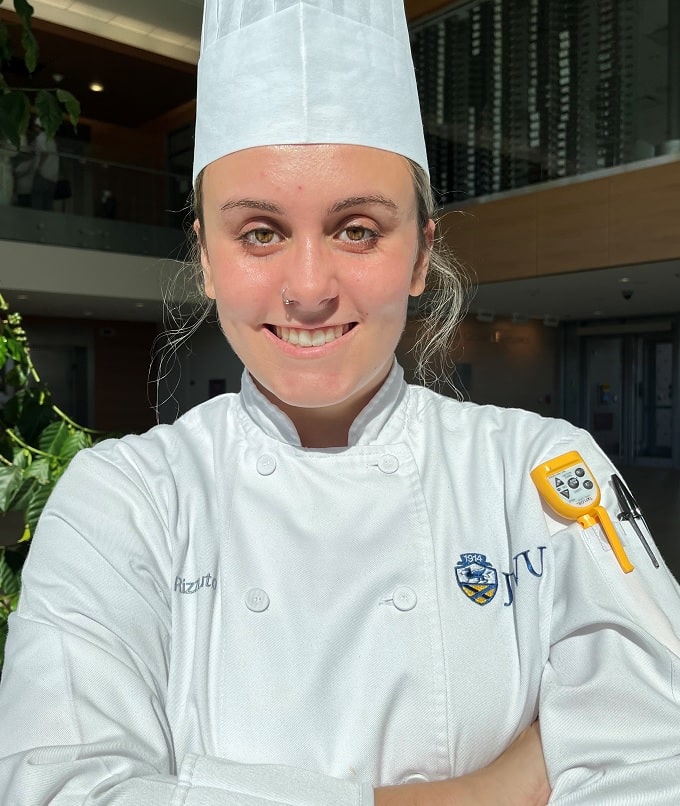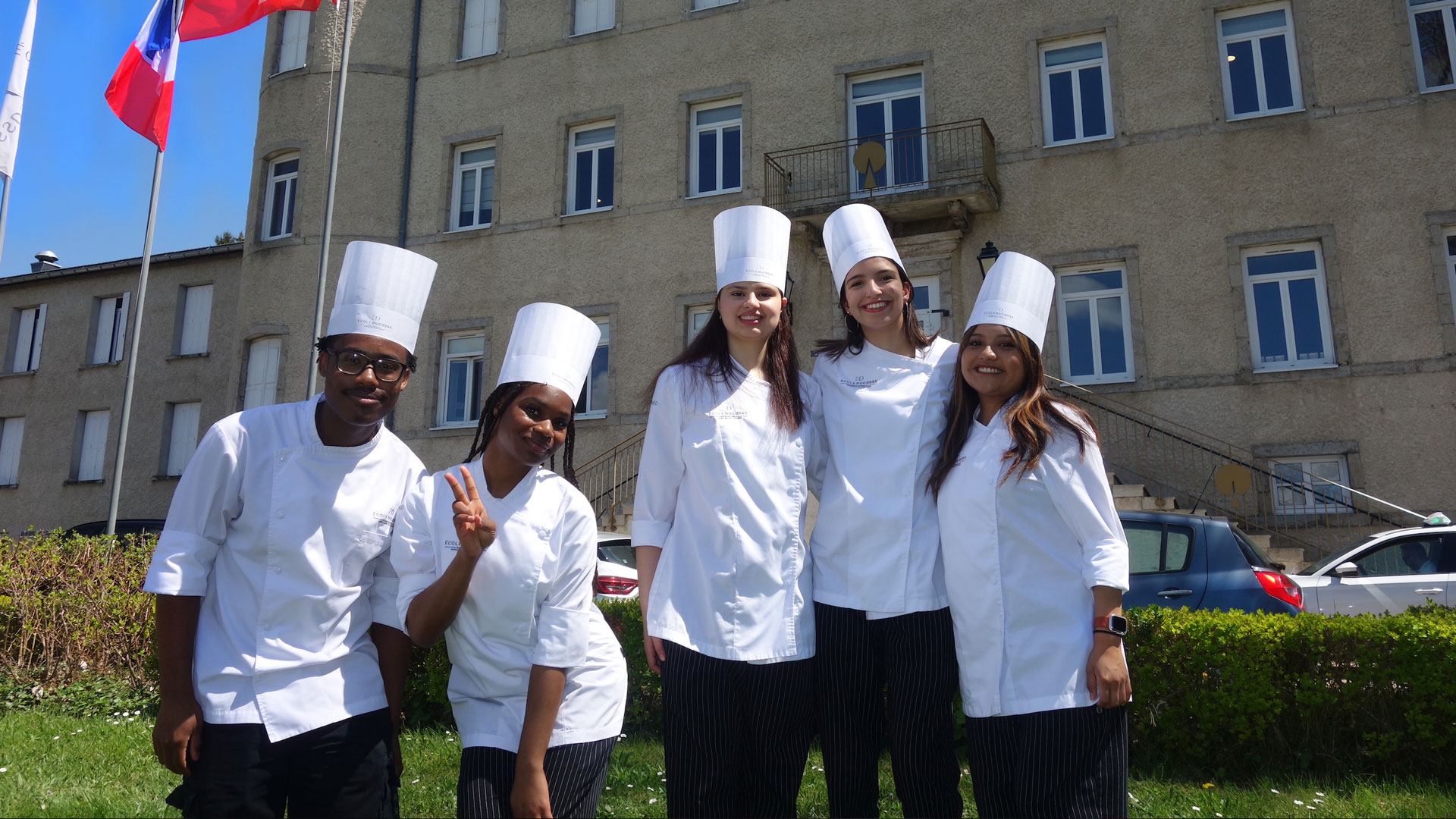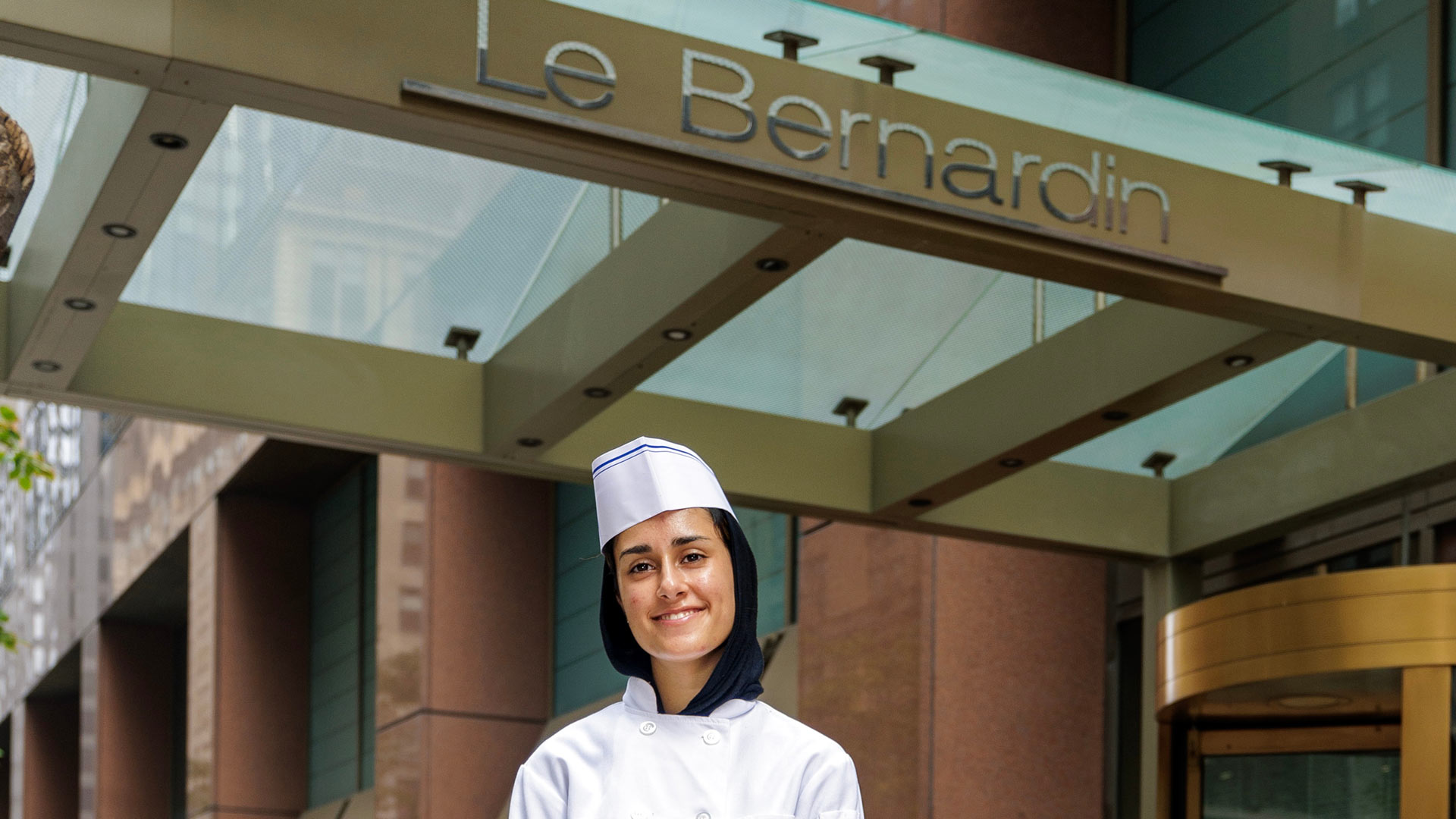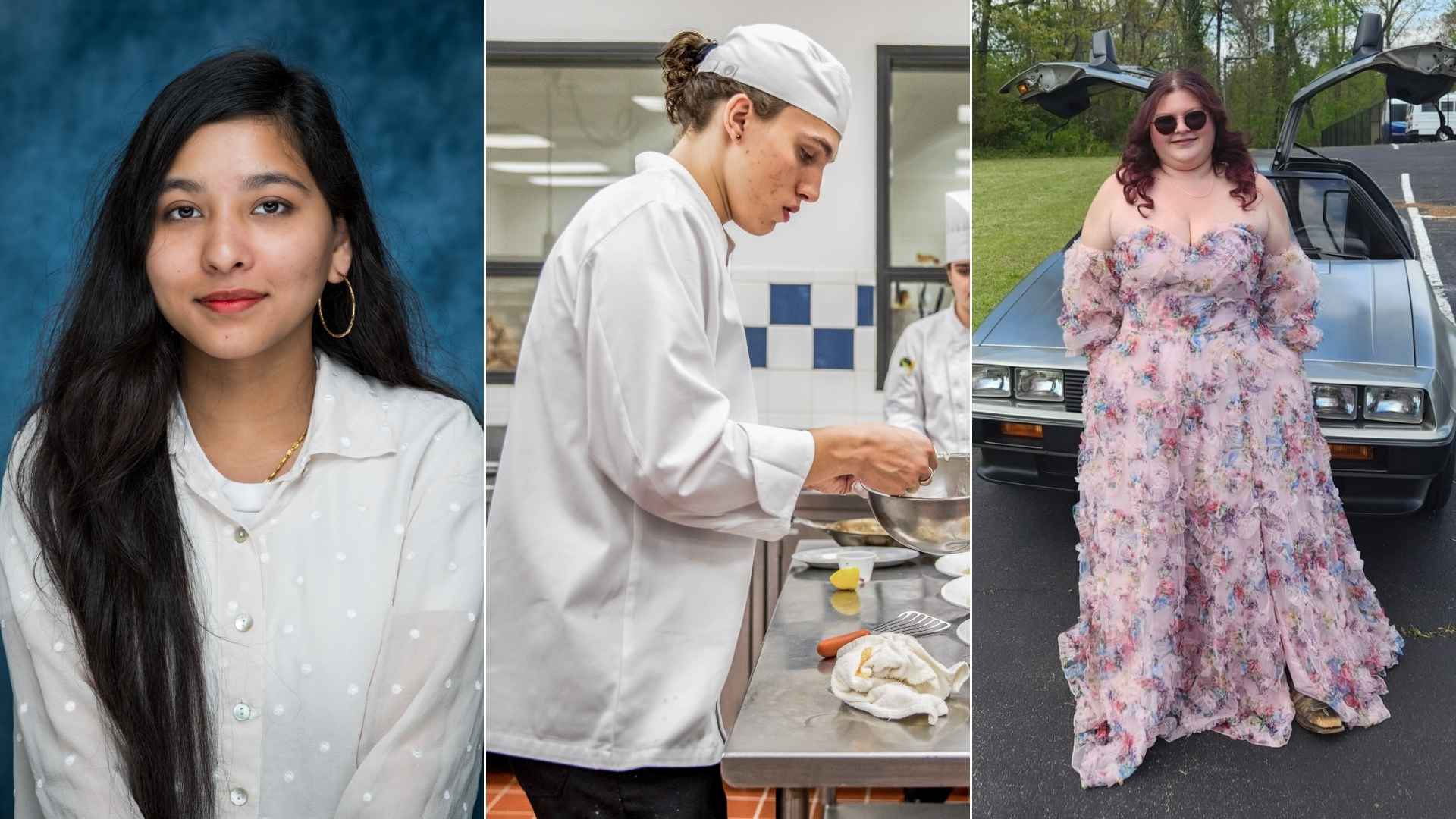7 Things I Didn’t Know about Culinary Nutrition (but Now I Do)
Toniann Rizzuto ’22 grew up around good food. Raised in an Italian family in New York, Sundays meant trays of traditional, home-cooked specialties for dinner. “Food brings people together,” she said. Her first taste of the culinary arts was cooking alongside her grandmother. Rizzuto remembered with a laugh that, as a young chef, she’d mix up every condiment in a bowl, “I was curious!”
 That sense of fearless experimentation has served her well at Johnson & Wales University, where she has been working towards a bachelor’s degree in Culinary Nutrition. Drawn to the school due to its renowned culinary reputation, Rizzuto started studying culinary arts but quickly realized in her first year that she could pair her passions for food and nutrition with a more specialized degree. She said, “It was a fusion of the things I liked best, sitting right in front of me!”
That sense of fearless experimentation has served her well at Johnson & Wales University, where she has been working towards a bachelor’s degree in Culinary Nutrition. Drawn to the school due to its renowned culinary reputation, Rizzuto started studying culinary arts but quickly realized in her first year that she could pair her passions for food and nutrition with a more specialized degree. She said, “It was a fusion of the things I liked best, sitting right in front of me!”
Along the way, she’s had internship opportunities from Disney’s Grand Floridian Resort & Spa to her current internship cooking for patients at Boston Children’s Hospital. Taking her skills out of the classroom and into professional workspaces gave her the realization of how well-prepared she is for her future culinary career. “I’ve found confidence as a chef,” she said.
“I’ve found confidence as a chef.”
As Rizzuto looks forward to her graduation this May, she shared a few of her top takeaways from studying Culinary Nutrition at JWU.
Learn More: Culinary Nutrition Degree
1. It’s OK to play with your food.
As part of her culinary training, Rizzuto had to create more nutritious versions of conventional food to problem-solve for health or dietary needs. Crafting food for a lower-fat diet may mean she could no longer rely on oil to make a fried item golden brown and crispy and instead had to air-fry; likewise, an egg allergy might require chia or flaxseed “eggs” to add structure and bind the ingredients together for a muffin.
2. Healthful food should taste delicious.
Restrictive diets don’t have to be bland. From a dietary perspective, a meal of steamed spinach and chicken could fit into a keto diet. “But it doesn’t taste good!” Rizzuto said. Here’s where she sees the key benefit of her culinary nutrition education. “This program is perfect for a chef who wants to be competent in nutrition or a nutrition professional who wants to understand how to cook,” she said.
3. Nutrition goes beyond the plate.
In a traditional four-year culinary arts degree, a student will graduate skilled in preparing amazing food in a variety of ways, traditional and cutting-edge. They will create memorable meals and dining experiences — but the idea of continuing the conversation about why we eat what we eat appealed to Rizzuto. She said, “Culinary nutrition brings in the education component and a conversation about food to the general public.”

4. Fried chicken can be on the menu.
Yes, even fast-food favorites can be made healthy. “In a meal makeover assignment, we had to figure out how to make KFC nutritious.” Her fixes included mashed vegetables instead of mashed potatoes and dredging the chicken in whole-grain flour. “Being intentional is part of the fun of nutrition,” Rizzuto said.
5. Dietary needs can change.
Students in JWU’s Culinary Nutrition program take a course called Lifespan Nutrition, which exposes them to how people of different ages have different food needs. “Babies are so impressionable and their food and vitamin intake dramatically impact their development,” Rizzuto recalled. “I was always interested in ‘What am I putting into my body?’ but now it’s night and day.”
“When you view food from the viewpoint of health and wellness, everything is so different.”
6. You are what you eat.
Here’s food for thought from Rizzuto: Food is functional, and moderation is key. “There was a time in my life where I was really unhealthy — it was all salads or binging,” she shared. “We don’t have to live such a black-and-white life.” Instead, she focuses now on the benefits of food like vitamins, protein and healthy fats. “When you view food from the viewpoint of health and wellness, everything is so different.”
7. Nutrition skills can be put to work on sports teams, in hospitals, in the community — and beyond.
While Rizzuto wants to be clear that there are many nutrition jobs that require advanced education and training in dietetics, like a registered dietitian (R.N.), those who are educated in nutrition can still land exciting careers fueling professional athletes or helping to nourish patients.
What is Culinary Nutrition?
A bachelor’s degree in Culinary Nutrition will help hone your culinary skills while giving you a strong foundation in nutrition concepts. If you have a passion for cooking and helping others live healthier lives, studying culinary nutrition could be your recipe for success. At Johnson & Wales, you can even focus your core lab courses in either Baking & Pastry Arts or Culinary Arts.



